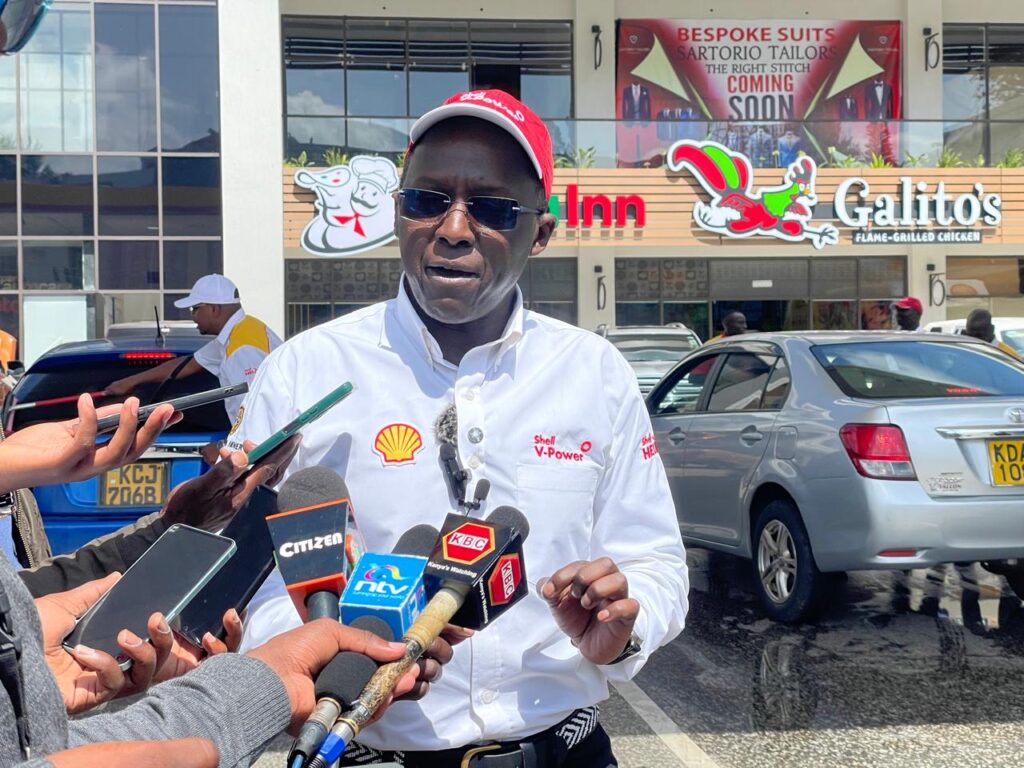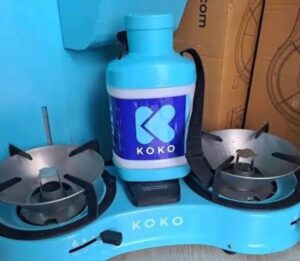
Vivo Energy Kenya Managing Director Peter Murungi speaking to the press at Shell Service station at Lavington, Nairobi on Friday 7 February 2025. Photo | JEDCA MEDIA.
Vivo Energy Kenya, the distributor of Shell V-Power fuel, has firmly refuted recent allegations questioning the quality of its fuel. The company’s Managing Director, Peter Murungi, addressed these concerns following a viral social media video that purported to test the fuel’s quality at certain service stations.
Speaking to the press at Shell service station in Lavington Nairobi, Murungi emphasized that all fuel consignments undergo stringent testing upon arrival in the country, consistently surpassing the minimum standards set by the Energy and Petroleum Regulatory Authority (EPRA) and the Kenya Bureau of Standards (KEBS).
He said the fuel undergoes multi-layered testing to verify its quality and ensure it meets RON 95 requirement, before it’s dispatched to service stations across the country.
“Shell products have been developed with the highest technology globally. We ensure that we meet minimum requirements in product quality. When the product {fuel} is loaded at the source, we must get the quality specification. When it arrives in Mombasa we check against that quality specification in an approved laboratory,” Murungi said.
ALSO READ: Gulf Energy to Begin Oil Production in Kenya by 2026 After Regulatory Approval
The controversy arose from a video circulating online, which showcased a device allegedly used to test fuel quality. Murungi criticized the use of this gadget, clarifying that it is not designed for fuel testing but is intended for more basic substances, such as ethanol. He stressed that legitimate fuel testing must be conducted in certified laboratories equipped with proper methodologies and equipment to ensure accurate results.
In response to the viral claims, Vivo Energy Kenya commissioned an independent test by Intertek Testing Services to validate the quality of Shell V-Power. The results confirmed that Shell V-Power in Kenya fully met the required Research Octane Number (RON) of 95, a key indicator of fuel quality. Despite the allegations, Vivo Energy reaffirmed that Shell V-Power adheres to international quality standards.
This comes a day after KEBS and EPRA came out to defend Vivo Kenya against the allegation that its fuel is substandard. In a statement seen by JEDCA MEDIA, the two regulators said that the Shell V-Power fuel meets the quality requirements including the RON 95, which was the point of contention raised by the viral video.
“Following the recent circulation of reports and videos on social media, we have conducted comprehensive confirmatory tests on fuel samples from various petroleum retail stations, including those specifically mentioned in these reports,” the statement noted.
“We are pleased to inform the public that the results from these tests show that the fuel at all the sampled stations meets the required Research Octane Number (RON) ratings as specified by Kenyan standards.”
The statement also clarified that Super Petrol, marketed as premium fuel with higher RON ratings, consistently met these elevated standards.
KEBS and EPRA reassured consumers that all tests are carried out in controlled laboratory conditions to guarantee precision and accuracy.





